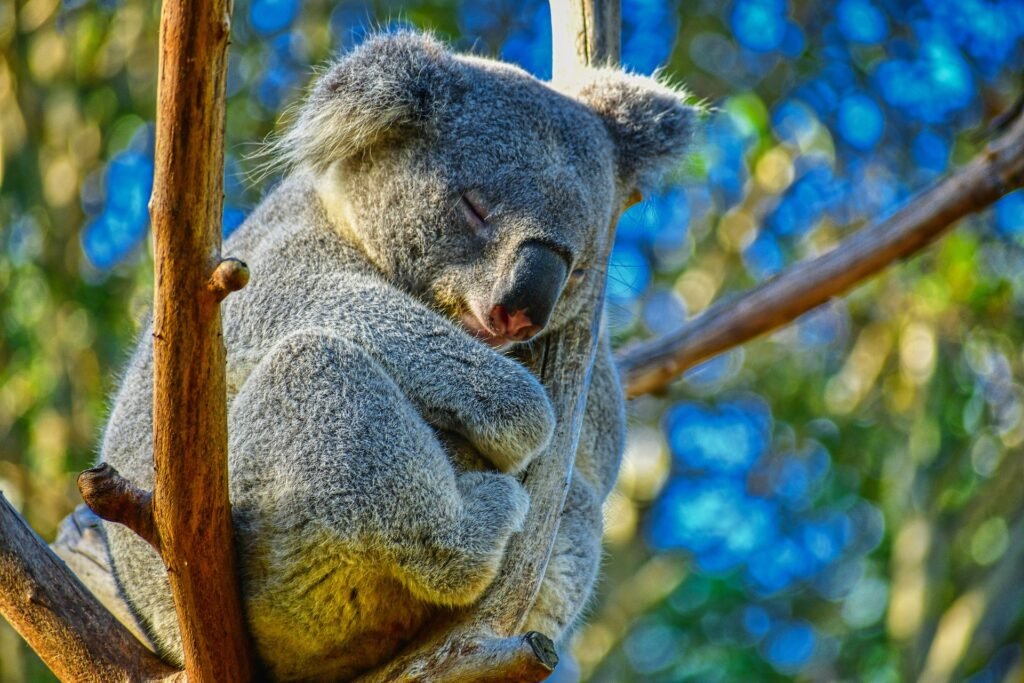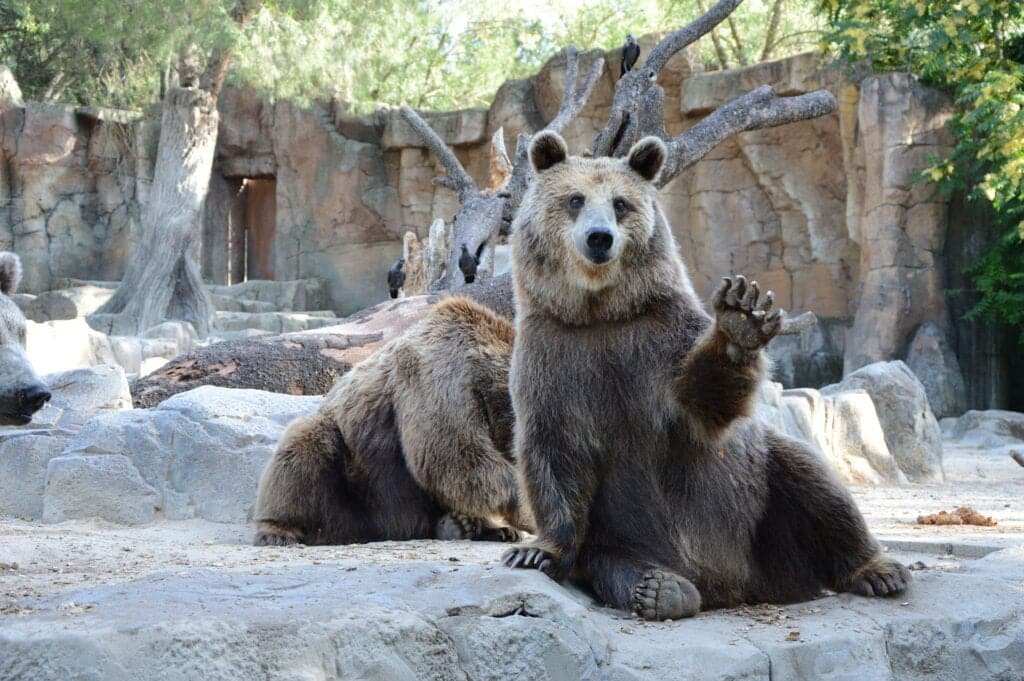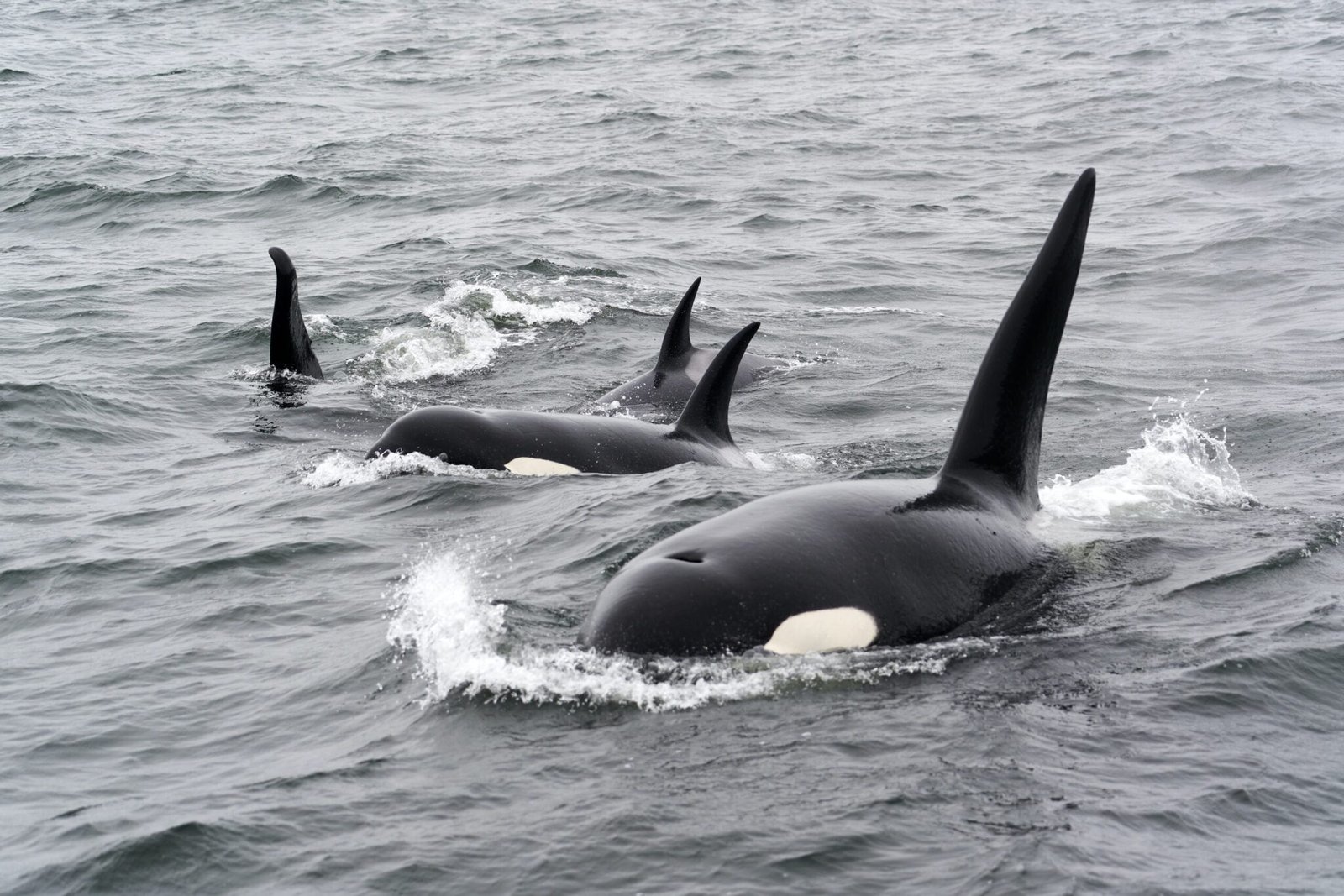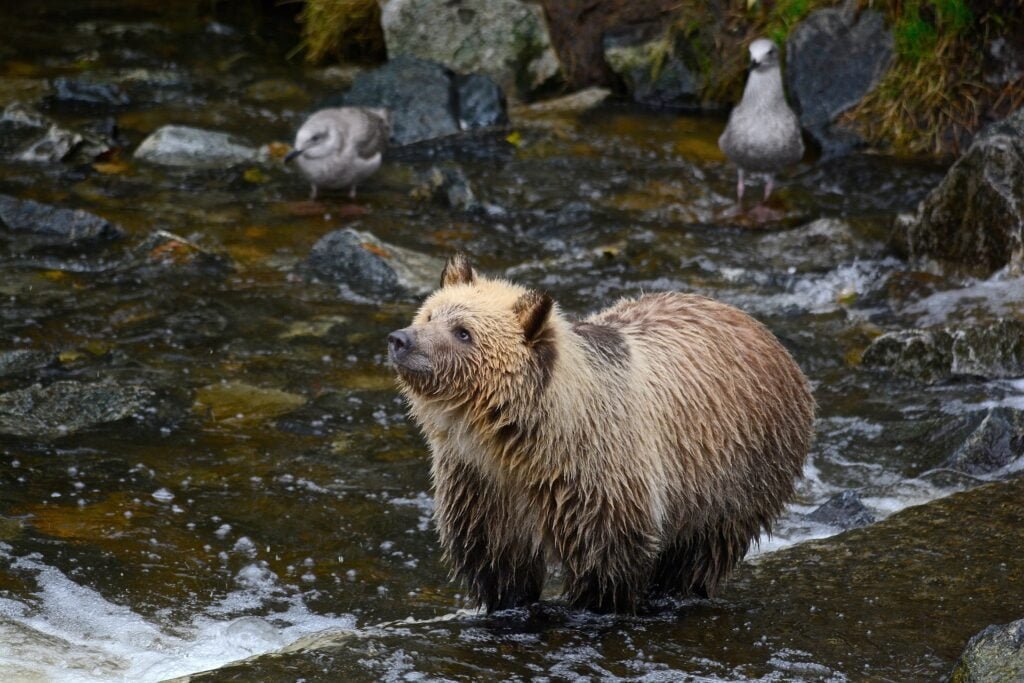Introduction
Often perceived as adorable yet not particularly bright, Koalas (Scientific name: Phascolarctos cinereus) have sparked curiosity and numerous myths regarding their intelligence. This article dives deeper into the natural and behavioral aspects of koalas. We aim to provide a deep understanding of these unique marsupials. We will especially take a deeper look at the peculiar koala bear brain. Let’s find out what is true and what is not.
The Koala’s Brain: Size and Structure

The Brain-to-Body Mass Ratio
Koalas possess one of the smallest brain-to-body mass ratios in the mammalian (mammals) kingdom. This ratio is a measure of the size of an animal’s brain relative to its body size and is often used as a rough indicator of an animal’s cognitive abilities. In short, the smaller the brain to body mass ratio the less intelligent the animal.

The Smooth Brain
Unlike many mammals, koalas have a relatively smooth brain. This lack of complexity in brain structure limits their cognitive functions, impacting their ability to perform complex tasks. Their brains are quite smooth and lack the complex folds seen in animals with higher cognitive functions, such as primates. This anatomical feature suggests that koalas have fewer neural connections and, consequently, less capacity for complex thought and problem-solving.
However, Koalas do show remarkable spatial awareness, crucial for navigating the complex arboreal habitats they live in. This ability indicates a level of problem-solving skills and memory. So they are not completely stupid. The Koala brain shape and cognitive abilities are highly linked to their diet.
Dietary Habits: Eucalyptus Leaves

Nutritional Value and Toxicity
Koalas exclusively consume eucalyptus leaves, which are low in nutritional value and toxic to most animals. This unique diet is a result of evolutionary adaptation. Their ability to consume and digest toxic eucalyptus leaves is a testament to their specialized evolutionary adaptation, showcasing a form of intelligence tailored to their environment.
Their energy needs are so finely tuned to their food source that they have evolved to minimize energy expenditure in other areas, including brain development. It is said that in intelligent species such as us Humans for example as much as 80% of our energy consumption is used by our brain. So because of their low-calorie diet, koalas cannot afford to spend a lot of energy. Their brains have evolved to minimize energy consumption.
Further Energy Conservation
The low-calorie diet of eucalyptus leaves necessitates a lifestyle of minimal energy expenditure. This is why koalas spend most of their time sleeping or resting to conserve even more energy.
Behavioral Traits

Lack of Recognition
Koalas exhibit behaviors that may seem unintelligent. For instance, they fail to recognize eucalyptus leaves as food when presented in an unfamiliar form.
Reaction to Rain
Koalas do not seek shelter during rain, often leading to the perception of a lack of common sense. This behavior is more a result of their evolutionary adaptations than a lack of intelligence.
Social and Communication Skills
Despite being solitary, koalas have developed sophisticated communication methods through vocalizations and scent markings, indicating a degree of social intelligence.
Koalas and Spatial Awareness
Koalas have limited spatial awareness, a trait linked to their smooth-brained structure. This affects their interaction with the environment and their survival strategies.
Conclusion
The koala’s unique brain structure and lifestyle adaptations may give the impression of low intelligence. However, these traits are evolutionary responses to their specific ecological niche.
FAQ
Why do koalas have small brains?
Koalas have small brains as an evolutionary adaptation to conserve energy, which is in line with their low-energy diet of eucalyptus leaves.
Are koalas the only animals with a smooth brain?
No, koalas are not the only animals with a smooth brain, but this trait is relatively rare in the mammalian kingdom.
How do koalas’ dietary habits affect their intelligence?
The koala’s diet of eucalyptus leaves, which are low in nutrients, necessitates a lifestyle of minimal energy use, impacting their cognitive abilities.




